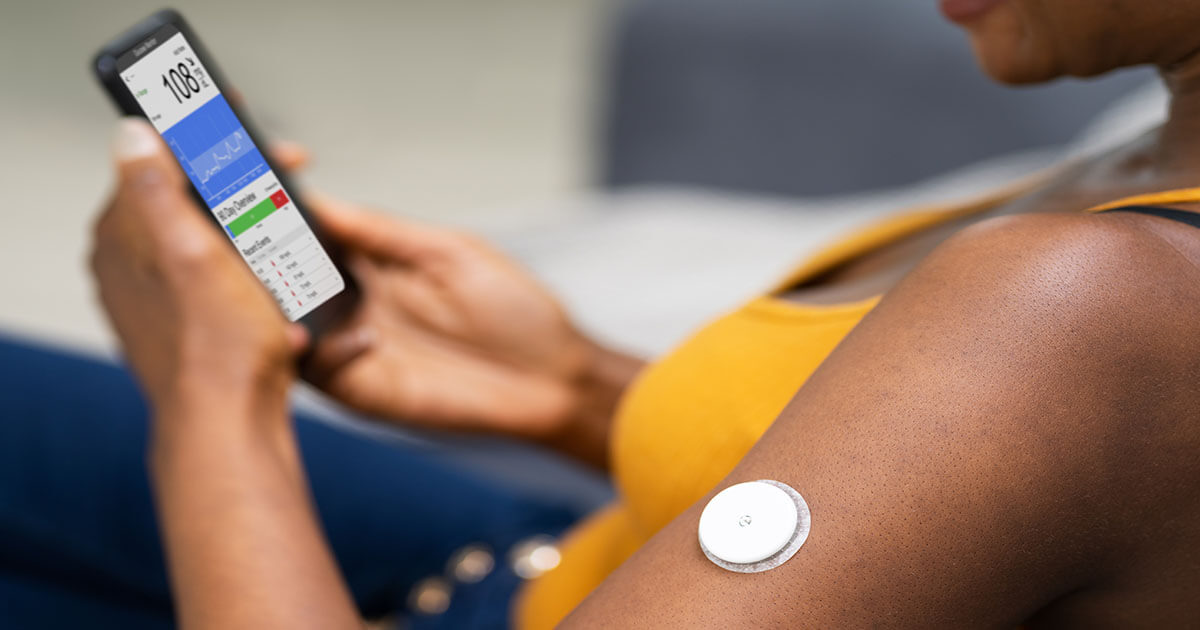Individuals go through many transitions in the education cycle, one of which is the transition from secondary school into college or university. Schools and colleges differ greatly in how they support students with long-term medical conditions such as diabetes, and this can lead to unease for both prospective students and their parents or family members. Bridging the gap to ensure that best practice and support continues during this transition is vital. This article aims to show how one college and hospital diabetes service found a way to help bridge that gap.
One of the main demands of the role of nurse at Bournemouth and Poole College is to ensure that all students with medical conditions have efficient and high-quality healthcare support during their years of study. Higher education facilities hold a duty of care to make sure all students are supported within the college environment, regardless of health or disability issues (Equality Act, 2010). The college nurse must ensure that all members of staff are made aware of the impact of a medical condition on their students’ health and social and educational outcomes (Department for Education, 2015). This is done through provision of individual healthcare plans to students and tutors.
Over the years, there has been a steady rise in the number of students disclosing diabetes on their application forms. Currently, Bournemouth and Poole College have 23 such students in the 2015/2016 academic year. This is in contrast to 15 students in the previous year, five in 2013/2014, none in 2012/2013 and one in 2011/2012 (Figure 1). It is important to note that these figures may not be a true representation of the number of students with diabetes as they are based on personal disclosure only.
Many colleges have their own nurse in place, but it is not an absolute requirement to employ one. There is no standard nursing qualification required to be a college nurse, so in the local area Registered General Nurses, Mental Health Nurses and State Enrolled Nurses are all involved in the role.
In contrast to colleges, most schools have a statutory requirement to have a linked school nurse employed through the NHS. Schools therefore have ready access to NHS resources like paediatric diabetes specialist teams, who often help with access to Diabetes UK and JDRF school information packs and resources. Paediatric diabetes teams visit many schools or run diabetes update sessions throughout the year for school staff. This assists with ensuring that staff feel confident in supporting children and young people (CYP) in school settings. Teaching often includes essential components like injection technique, basic carbohydrate counting and the recognition and treatment of hypoglycaemia and hyperglycaemia. Paediatric DSNs play an active role in writing school healthcare plans in partnership with school staff and parents.
Many universities have their own medical centre with doctors and nurses on site or nearby, but these may not have specialist diabetes knowledge or training. Ongoing diabetes follow-up can be shared between the GP at the university and the local hospital diabetes service, or the students’ home diabetes service if review appointments can be made outside term time, thus offering some continuity of care. However, living away from home at college or university is a risk factor for becoming lost to follow-up in transition or in adult diabetes services. Common contributors to this risk include changes in student addresses each year and poor continuity of other contact details such as mobile phone numbers and email addresses.
There is a requirement for universities and further education colleges to engage more with the needs of students with diabetes. A study covering this area of care, conducted by Norfolk and Norwich University Hospitals, the University of East Anglia and Diabetes UK, was presented at the Diabetes UK Professional Conference in 2015 (Myint et al, 2015). The authors found that self-management deteriorated on transition to university, with 28% of students missing more insulin doses, 63% reporting more difficulties with glycaemic control and 44% having an increase in HbA1c. Students reported a number of factors that impacted on their blood glucose management, including stress, meal timing and choices, a lack of regular routine with university timetables, socialising, sports, difficulties with carb counting and increased responsibility. Other practical problems concerning access to medication during holidays and attending clinics also pose a real issue for students.
Perhaps now is the time to start a UK-wide network of college and university nurses to support healthcare professionals, lecturers and students with diabetes, and to share any best practice ideas. Students in the Norfolk study felt they needed more information about going away to university from their diabetes team. Discussions about what to expect would be useful in the year before they go.
How do we ensure best practice is in place in Poole?
To ensure that students are getting the most appropriate support and healthcare in college, it is important to ensure that nursing knowledge and general skills are kept up to date (Nursing and Midwifery Council, 2015). This includes knowledge on a variety of long-term medical conditions, such as diabetes, epilepsy, anaphylaxis and asthma.
After contacting specialist nurses at Poole Hospital, it was decided to meet and review the systems currently in place for students, and to discuss how to facilitate a smooth transfer into higher education. A collaborative working relationship has been established between the nurse at Bournemouth and Poole College and two nurse specialists (one in diabetes and the other in epilepsy) from Poole Hospital. This has provided improved college care plans with the most up-to-date and relevant procedures to support these long-term medical conditions.
It was noted that there were a number of young people (16–23 years) from the hospital clinic who also attended the college, so discussions took place to see if it would be possible to set up and run a monthly drop-in diabetes education clinic at the college from January 2016. There was already historical evidence that similar clinics had been successful in senior schools (Dalton, 2001). School clinics had shown that peer support and information-sharing with friends of CYP with diabetes was an effective way to improve knowledge and skills in diabetes self-management. There was also acknowledgement that using a different, more informal setting away from usual hospital clinics allowed CYP to meet on “neutral” territory and support discussion and learning within a peer group (Ross et al, 2016).
Closer links are now in place for tracking any students of concern from both the college and the hospital. Students with diabetes or epilepsy have given consent for the college nurse and the specialist nurses to share information and resources.
Offering diabetes training and education is one of the key aspects of the DSN role. This includes teaching people with diabetes, their families and also other nurses, as well as their own professional development and accreditation with the Nursing and Midwifery Council. Nurse training does not routinely include how to teach and engage patients in learning, but recently there has been more focus on this aspect of the role, and education programmes have been designed to fill the gap (Box 1). These newer courses are for all multidisciplinary team members, not just nurses, and can lead to accreditation for diabetes educators.
The Poole transition DSN had registered for a Diploma in Education and Training (DET) course at Poole College campus in September 2015 as part of her own professional development and to improve the way she teaches people with diabetes. This is a 2-year, part-time course offered in many higher education facilities across the country. Diabetes team members may find it easier and more cost-effective to access a generic local education and training course and learn the basic theories and practices in teaching if they already have accredited qualifications in diabetes care. The DET course touches on both adult and paediatric learning theory, but is designed for teaching those aged 14 years and over, so is ideal for the transition age range.
Diabetes clinics in hospital settings are not specifically designed to deliver education, whereas the very nature and purpose of higher education institutions is to teach and expand knowledge, skills and learning. It was hoped that this focus would be helpful in setting up such a clinic. Monthly diabetes clinics within the college were agreed. The aim of the clinics was to encourage young people with diabetes to attend and share information, thoughts and ideas. This would also provide opportunities to give them and their friends support and information in relation to living with diabetes as a long-term condition.
College clinics
As college is different to school, the clinics were held once per month, but on a different day each month to accommodate student timetable constraints. Most clinics had a potential attendance of eight students in college from Poole’s Young People’s Diabetes Service. The clinics were run at lunchtime, as eating lunch, carbohydrate counting and blood glucose testing together allows an important social aspect to this teaching that is not possible in hospital clinics. Lunch was kindly supported by a number of diabetes companies and comprised sandwiches, fruit, snacks and a drink.
Email and text invitations and reminders were sent out to those eight students. Each monthly clinic had a theme. The first 2 months revolved around coping with diabetes and exams, as the exam season was just starting. Subsequent clinics have discussed travelling with diabetes, sexual health, sick day rules and smoking. Engaging with young people is not easy, nor is finding new ways to make diabetes education and training interesting, but this more informal discussion with micro-teaching sessions and lunch combined seemed to help. The provisional programme for the 2016/2017 year can be seen in Table 1.
Each micro-teaching session has assessment of knowledge and understanding throughout and is followed by evaluation and peer support so that immediate feedback is given. To date we have had four students who regularly attend the clinic with friends, and the feedback received so far has been positive, with students stating that they have found the clinic to be informative, fun and useful. They were particularly happy to receive a free lunch too!
One student had stated that, on starting college, he was unsure where to go to check his blood glucose and administer insulin, whereas at school a designated and staffed medical room had been available, and he felt self-conscious when undertaking these self-care tasks in public. Improving self-confidence has been a key aspect within the clinic, working towards empowering young people to take control of their diabetes in new situations, whilst still having the awareness and reassurance of the support that is available for them.
There are a number of reasons why others chose not to attend, and the reasons were similar to those given when young people do not attend hospital clinics – they were too busy, forgot, had clashes with the college timetable or simply did not want to come.
The importance of diabetes education
In 2007, Sue Roberts, the National Director for Diabetes, noted that, “People with diabetes spend three hours a year with a healthcare professional on average. For the remaining 8757 hours they have to manage this complicated condition themselves” (Roberts, 2007). Structured patient education has an increasingly important role in successful diabetes self-care for both CYP and adults. Diabetes UK are keen for more adults with diabetes to access diabetes education programmes and are concerned that participation levels are lower than expected. The charity recognises that, “For diabetes management to be truly effective, patients need the skills and confidence to take control of their own health” (Diabetes UK, 2015).
In college, students are encouraged to become more independent with the management of their own diabetes, including carrying their blood glucose and blood ketone meters, their insulin delivery system and treatment for hypoglycaemia. Most college clinic discussions include at least one practical skill so that students can practice. For example, the session on travel looked at using the BD Safe-Clip device and activating Frio packs.
One student who was previously lost to follow-up at the hospital clinic for over 2 years has now engaged with the college clinic as it is easier to get to and he is already there 3 days a week. Doing it this way has alleviated his anxiety to re-engage with the hospital team. He now attends both the hospital and the college clinics regularly, and this is reflected in a reduced HbA1c, more blood glucose monitoring and a better understanding of carbohydrate counting.
Future plans
Members of staff at the college are provided with individual healthcare plans detailing the support a student may require. A gap in tutors’ knowledge has been identified by the tutors themselves relating to how diabetes can have an impact on students’ learning, particularly with regard to their ability to concentrate with fluctuating blood glucose levels. The decision has been made to deliver a presentation to college tutors to highlight the issues students with diabetes may face. This will include topics such as the following:
- An overview of diabetes and how it is treated.
- Recognition, treatment and effects of hypoglycaemia and hyperglycaemia.
- Illness and attendance.
- Exams and stress.
- Emotional wellbeing and social interaction.
From September 2016, the monthly college clinic will invite all students with diabetes, even if they attend a different hospital in Dorset (Dorchester or Bournemouth) and will include both younger and mature students. The college nurse would like to set up a similar drop-in clinic at the Bournemouth campus site, as the local hospital has recently appointed its own transition DSN. The transition nurse in Poole will let the Dorchester and Bournemouth diabetes teams know if one of their students attended and what was discussed as the topic that month. This decision to work together across the county has been supported by both Dorchester and Bournemouth teams, and we are looking at other ways in which diabetes transition services can work together more closely in the future by sharing ideas and limited resources. Seizing an opportunity to enable our services to work together on behalf of patients/students in this way allows us to maintain an active and ongoing relationship together. Even if students don’t attend our college clinics each month, an invitation is sent so they are aware that a door is left open allowing them to access our support. By offering this service, any deterioration in their self-management will hopefully be minimised, thus improving long-term outcomes.
Curriculum sharing
As part of the Diploma in Education and Training course, Poole’s transition nurse had to write a curriculum for the clinics, with lesson plans and a group profile of the students. At the same time, Novo Nordisk launched their updated diabetes support programme, With You All The Way, which includes the Goals of Diabetes Education toolkit for healthcare professionals focussed on CYP with type 1 diabetes (Novo Nordisk, 2016). Many of the topics covered in this educational goals programme make excellent micro-teaching opportunities in the college clinics. Pulling these pieces of work together, there is now a draft programme that will run from Sept 2016 for a full academic year and which aims to include most of the goals for the 16–18-years age group. It will be the first time such a package has been tried in a college setting, but hospital clinics are also using the Goals programme, so the topics will be consistent. Each micro-teaching session and lesson plan will include assessment of knowledge and understanding, with evaluation as part of the plan. There will need to be some flexibility so that additional subjects can be covered, such as smoking or diabetes complications. These are not in the plan at present but are often discussed at diabetes clinics, particularly at annual review, and they are topics to cover in the Goals programme. The college clinics do not take anything away from hospital clinic teaching opportunities but are there to offer an alternative venue for teaching students with diabetes alongside their friends and peer support.
The transition nurse is planning to send copies of the curriculum and lesson plans to the local CYP network co-ordinator so that other diabetes nurses can access them. Hopefully the UK-wide National CYP’s Diabetes Network will be able to house similar resources and ideas for all the other age groups covered in the Goals programme so that other teams can use and share them too. She has also discussed this idea with Novo Nordisk, who are happy to support the idea of sharing these resources across the Network.
If you are a diabetes healthcare professional currently undertaking an education and training course or MSc programme and want to write similar lesson plans or curricula for others to use and share, please contact the Poole Young People’s Diabetes Service transition nurse at: yps.diabetes@poole.nhs.uk. Let’s see if we can help each other and improve the way we teach and engage with diabetes self-care in our CYP.





NHSEI National Clinical Lead for Diabetes in Children and Young People, Fulya Mehta, outlines the areas of focus for improving paediatric diabetes care.
16 Nov 2022